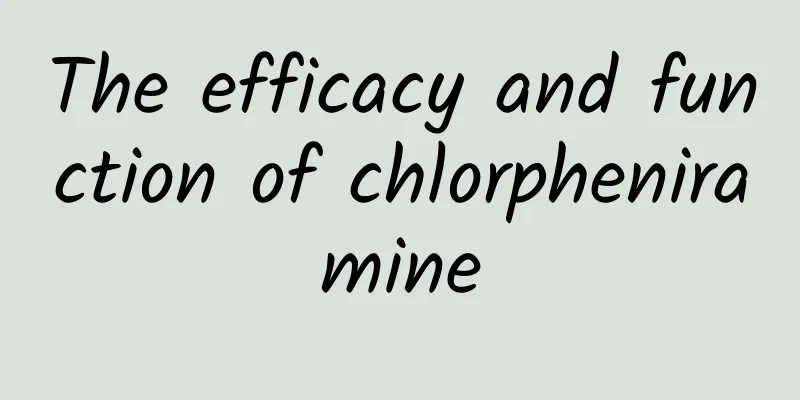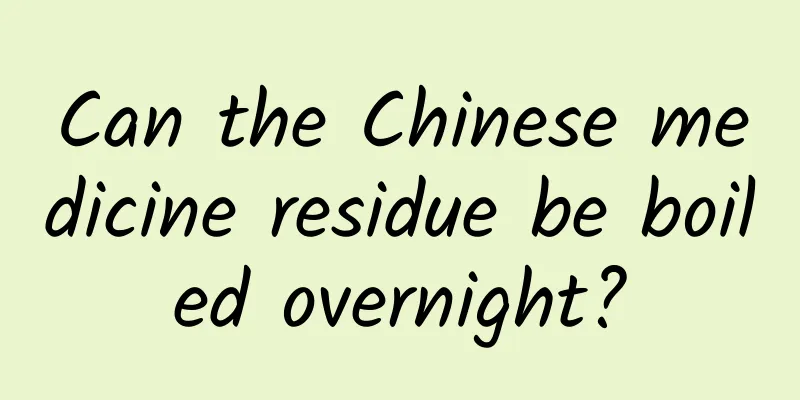The efficacy and function of chlorpheniramine

|
Chlorpheniramine is a type of drug used to treat allergies and can help people constrict the blood vessels in the nasal mucosa. However, when people use this drug for the first time, they must be very unfamiliar with it, and they don’t know much about its effects and functions. Let’s take a look at what knowledge there is about Chlorpheniramine. The function of chlorpheniramine is actually to fight allergies. It can help people constrict the blood vessels on the nasal mucosa, reduce some inflammatory exudates in the body, and effectively help people relieve nasal congestion, runny nose, sneezing and other adverse symptoms. Therefore, it is necessary to understand the efficacy and effects of chlorpheniramine. Under normal circumstances, people can gradually stop using chlorpheniramine after their nasal symptoms are alleviated. Who should not use chlorpheniramine? 1. It is forbidden for patients with epilepsy as it may induce epilepsy. 2. Use with caution in lactating women, patients with glaucoma, hypertension, hyperthyroidism, and prostate hypertrophy. 3. During the medication period, you are not allowed to drive a car, boat, airplane or other motor vehicle or operate any machine. Main functions: 1. Chlorpheniramine is an antihistamine with the same main effect as diphenhydramine, but its sedative effect is generally weaker and its side effects are smaller than diphenhydramine. 2. Mainly used for various allergic diseases, such as insect bites, drug allergies, etc. 3. It can also be combined with other Chinese and Western medicines to treat colds, etc. The main adverse reactions of this type of drug are: 1. Central nervous system depression, manifested as fatigue, dizziness, drowsiness, sleepiness, etc. 2. This drug may also cause extrapyramidal reactions, gastrointestinal dysfunction, photosensitivity dermatitis, blood phase disorders and other reactions. Note: 1. This medicine should not be used in premature infants and newborns. Infants of this age are sensitive to its anticholine effects, and older children are also very sensitive to its anticholine effects, sedation, and hypotension. 2. Due to the drowsiness side effect of antihistamines, patients should not drive vehicles, operate machinery, or drink alcohol after taking the medicine. Although chlorpheniramine has many benefits and effects, some people may experience adverse conditions when using this drug, such as mild dry mouth, dizziness, nausea, drowsiness, etc., or skin bruises. However, such conditions are still rare in clinical practice, and it is normal for most people to use it. |
<<: The efficacy and function of senna leaves
>>: The efficacy and function of vitamin C
Recommend
Side effects of foxtail grass
The members' area for the functions and effec...
What is silkworm excrement?
Everyone knows that silkworm feces is a tradition...
What are the effects of ginseng?
Many people in China call ginseng the king of her...
What is the Chinese medicine whitening formula
Skin color may be caused by external factors as w...
The efficacy and function of a cloud leaf
Chinese medicine has different effects on our bod...
The efficacy and function of water ash bark
The bark of the water ash tree is a frequently us...
The efficacy and function of rhubarb charcoal
What are the effects and functions of Scutellaria...
Two years ago today, the lifeline of the Yangtze River Dragon was cut off and it was declared extinct.
Two years ago today, researcher Wei Qiwei, who ha...
The efficacy and function of white flower vine
The development of Western medicine has brought s...
The efficacy and function of Fujinaka
With the development of society and the close int...
Just observe the bubbles, this article will teach you how to become a wine connoisseur
Author: Deuterium The article comes from the Scie...
Did volcanic eruptions cause the fifth mass extinction?
The fifth mass extinction event, which occurred a...
Why do the things we longed to grab on Double Eleven not seem so attractive after we get them?
Review expert: Li Xianhong, National Level 2 Psyc...
In order to conduct this experiment, scientists actually kept people awake for 88 hours!
In order to conduct this experiment, scientists a...
【World First Aid Day】Protect lives, “rescue” around you
Author: Wang Changyuan, Chief Physician, Xuanwu H...









